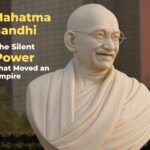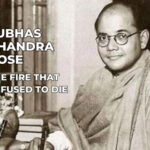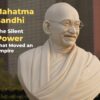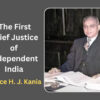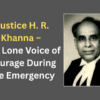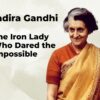When a nation awakens to freedom after centuries of bondage, it needs not just celebration — it needs vision, guidance, and leadership. On the midnight of 15th August 1947, as the clock struck twelve and India stepped into independence, one voice echoed in the hearts of millions — Pandit Jawaharlal Nehru, delivering his historic “Tryst with Destiny” speech.
Nehru wasn’t just India’s first Prime Minister — he was the dreamer-in-chief of a modern, progressive India. A statesman, a visionary, and a passionate humanist — Nehru believed that freedom was not the end, but the beginning of nation-building.
Early Life: Born Into Privilege, Driven by Purpose
Pandit Nehru was born on 14th November 1889 in Allahabad, into an affluent Kashmiri Brahmin family. His father, Motilal Nehru, was a renowned lawyer and Congress leader. Jawaharlal received the best education — at Harrow, Eton, and Cambridge, and trained as a barrister in London.
But even amidst privilege and comfort, his heart was restless. The struggles of ordinary Indians, the chains of colonialism, and the spirit of nationalism pulled him back to India. He could have lived a luxurious life, but he chose a life of sacrifice — standing beside Gandhi, shoulder to shoulder, to shape the destiny of a nation
The Freedom Fighter: Groomed by Gandhi, Forged by Struggle
Nehru’s political awakening was deeply influenced by Mahatma Gandhi. Though educated in the West, he found his true calling in India’s villages and slums — among the poor, the farmers, the youth, the voiceless. He traveled extensively, connected deeply, and committed wholly to the cause of independence.
He was imprisoned nine times during the freedom movement — spending almost nine years in British jails. Yet every time he came out stronger, with a clearer vision for a free, democratic, and inclusive India.
Unlike many leaders of his time, Nehru didn’t just fight for freedom — he planned what to do with that freedom.
The Prime Minister: Building a Nation from Scratch
On becoming India’s first Prime Minister, Nehru was handed a country that was bleeding from Partition, broken in spirit, and backward in infrastructure.
But he didn’t flinch. He rolled up his sleeves and started building — brick by brick, dream by dream.
His Core Contributions:
- Industrial Revolution in India: Established public sector undertakings (PSUs), modern industries, and the foundation of self-reliance.
- Science & Technology: Founded institutions like IITs, ISRO, and Atomic Energy Commission, knowing that science would power progress.
- Secularism & Democracy: Despite communal tensions, Nehru protected India’s pluralism, ensuring that religion never dictates governance.
- Education for All: Advocated free primary education, started Navodaya Vidyalayas, and created a scientific temper among youth.
- Global Peace Leadership: He was a founding voice of the Non-Aligned Movement (NAM), standing for peace and justice in a bipolar world.
The Visionary: A Dreamer Who Dared to Do
Nehru was not perfect — no leader is. But he dared to dream beyond his time.
He envisioned an India:
- Where factories and farms worked side by side,
- Where children carried books instead of burdens,
- Where reason ruled over superstition, and
- Where unity lived in diversity.
His idea of India was not religious, narrow, or rigid. It was liberal, modern, inclusive — a nation where every Indian had equal rights, dignity, and opportunity
The Emotional Leader: A Human First
Behind the statesman was a deeply emotional and sensitive man. He loved children, which is why his birthday is celebrated as Children’s Day. His letters to his daughter, Indira Gandhi, became the famous book “Letters from a Father to His Daughter” — filled with history, philosophy, and love.
He loved roses, not for their beauty alone, but for what they symbolized — delicacy with strength, fragility with purpose.
Legacy: The Light That Still Guides
Pandit Nehru passed away on 27th May 1964, but his ideas remain deeply
rooted in India’s soul. The universities, dams, factories, and institutions he built— still carry the weight of his vision.
Today, in an era of fast politics and instant opinions, Nehru reminds us that nation-building is not a sprint — it’s a long, thoughtful marathon. He was not just a leader of his time; he was a guide for generations.
“The achievement we celebrate today is but a step, an opening of opportunity, to the greater triumphs and achievements that await us.” – Pt. Nehru
Conclusion
Pandit Nehru was not a man without flaws — but he was a man full of purpose. He inherited a land torn by trauma and transformed it into a modern republic.
He gave us more than freedom — he gave us a blueprint for the future. His life tells every Indian youth: “Dream big. Build patiently. Serve selflessly.”
Because as long as India believes in democracy, diversity, and dignity —Jawaharlal Nehru will live on.


